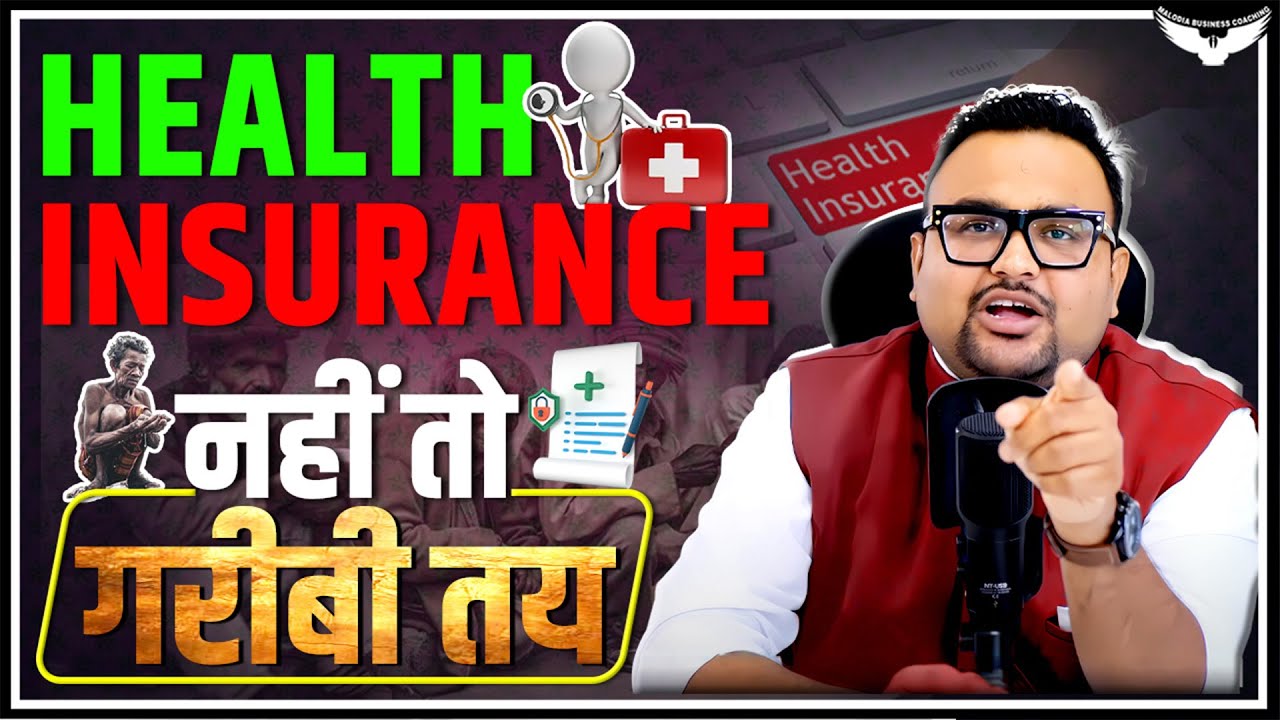Health Insurance In India
Summary
TLDRThe script discusses the necessity of health insurance in India, especially for the middle class, due to the high costs of private hospitals and the government's failure to provide affordable healthcare. It explains the concept of insurance, its history, and types like car and property insurance. The script emphasizes the importance of health insurance, how it works, and factors to consider when choosing a policy, such as cashless services, coverage limits, and claim settlement ratios. It also addresses the 'missing middle' and suggests that health insurance should be a must-have, with tips on selecting the right plan.
Takeaways
- 🏥 The middle class often avoids hospital bills to prevent falling into poverty, highlighting the need for effective healthcare solutions.
- 💔 Despite efforts by various governments since independence, India has struggled to provide affordable and accessible healthcare to all citizens.
- 🔍 An analysis of bills from Delhi NCR's renowned hospitals was conducted to verify the legitimacy of charges and identify any potential manipulation.
- 👨👩👧👦 The responsibility of a sole breadwinner for a family necessitates comprehensive health coverage to mitigate unforeseen medical expenses.
- 💼 Wealthy individuals like Bill Gates or Elon Musk may not require health insurance due to their ability to cover medical costs, but they might insure against other significant risks.
- 🌐 The concept of insurance originated from ancient trade practices where groups pooled resources to share losses, which has evolved into modern insurance systems.
- 🏢 Insurance companies play a crucial role in managing risk by collecting premiums and providing coverage as per government regulations.
- 📚 Health insurance is a critical topic that should be included in educational curriculums to increase awareness among young people.
- 💉 The introduction of health insurance was initially targeted at high-risk workers but has since expanded to cover a broader population.
- 🏥 Private hospitals in India often charge significantly more than government hospitals, with a reported six-fold increase in costs.
- 💊 Private hospitals have been found to avoid prescribing generic medicines to maintain higher profit margins, leading to inflated medical bills.
Q & A
What is the primary concern of middle-class individuals regarding hospital bills?
-The primary concern of middle-class individuals is to avoid hospital bills that could push them below the poverty threshold.
How has the Indian government's performance been in providing healthcare since independence?
-The Indian government has failed to provide free and quality healthcare to its citizens since independence, regardless of which party has been in power.
What is the role of insurance in mitigating risks?
-Insurance is a mechanism where money is collected from a group of people to protect them from financial loss due to unforeseen events, such as health issues.
Why did private hospitals become prevalent in India?
-Private hospitals became prevalent in India because the government failed to provide adequate healthcare and allowed private entities to enter the market to reduce its load.
How does health insurance help the middle class in India?
-Health insurance helps the middle class by providing financial coverage for medical expenses, thus preventing them from falling into poverty due to high hospital bills.
What is the difference in cost between private and government hospitals in India?
-The cost of admission in a private hospital in India is six times more than that in a government hospital, with an average cost of ₹4452 in government hospitals and ₹31,845 in private hospitals.
What is the issue with private hospitals avoiding generic medicines?
-Private hospitals avoid generic medicines to increase their profit margins by prescribing non-generic medicines, which often have no price restrictions and result in higher bills for patients.
Why is health insurance considered a must-have for citizens in countries with poor healthcare?
-Health insurance is a must-have for citizens in countries with poor healthcare because it provides financial protection against the high costs of medical treatment.
What factors should one consider when purchasing health insurance?
-When purchasing health insurance, one should consider whether it is cashless, has pre and post-hospitalization coverage, includes a co-pay option, has a cap on coverage, offers no claim bonus, and has a good reputation and claim settlement ratio.
What is the difference between an Individual Plan and a Family Floater Plan in health insurance?
-An Individual Plan covers only the person who takes the insurance, while a Family Floater Plan covers the entire family under a single policy with a shared sum insured.
How much health insurance coverage is recommended for individuals and families?
-It is generally recommended to have at least a coverage of 3 lakh for individuals under 30 years old and at least 5 lakh for family floater plans. However, the amount should be adjusted based on factors such as age, medical history, lifestyle, and location.
Outlines

このセクションは有料ユーザー限定です。 アクセスするには、アップグレードをお願いします。
今すぐアップグレードMindmap

このセクションは有料ユーザー限定です。 アクセスするには、アップグレードをお願いします。
今すぐアップグレードKeywords

このセクションは有料ユーザー限定です。 アクセスするには、アップグレードをお願いします。
今すぐアップグレードHighlights

このセクションは有料ユーザー限定です。 アクセスするには、アップグレードをお願いします。
今すぐアップグレードTranscripts

このセクションは有料ユーザー限定です。 アクセスするには、アップグレードをお願いします。
今すぐアップグレード関連動画をさらに表示

The Economics of Healthcare: Crash Course Economics #29

आपकी गरीबी बस एक Medical Emergency दूर है ? | Health Insurance | Rahul Malodia

🇮🇳India healthcare: 'Modicare' - India pm to launch new health scheme | Al Jazeera English

How AI Can Transform Decision-Making in Healthcare | Ana-Maria Constantin | TEDxBoston

It's not a solution if it's not affordable : Dr. Devi Prasad Shetty at TEDxGateway 2013

Healthcare Provider Industry Overview - Products & Services
5.0 / 5 (0 votes)
